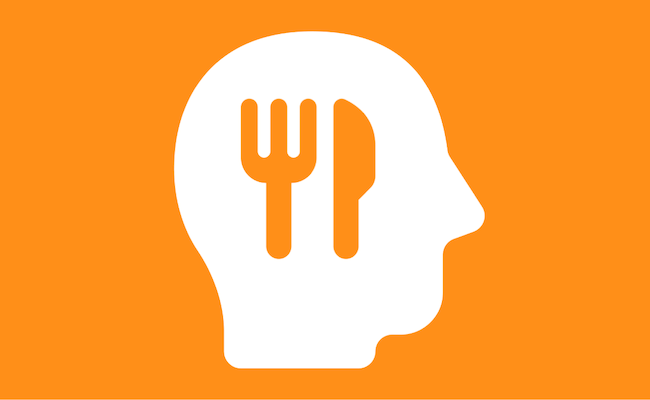What do we mean when we talk about sports nutrition? As opposed to just everyday nutrition and general wellbeing? Well, sports nutrition looks at the link between dietary intake and performance and looks to optimise both. We know that what and how we eat affects what our bodies can do. Take carbohydrates for example. Active people need more than sedentary individuals. Sports nutrition focuses on getting your body to perform at its best for whatever chosen activity, sport or gym regime you're pursuing.
More...
Some people look to change their body composition. That is, they are looking to change the ratio of body fat to muscle in their body. This has a knock-on effect on performance.
In general, the less fat we carry and the more muscle, the stronger, faster and more efficient we become.
For others, the main focus of their sports nutrition diet is providing energy to get through tough training sessions. Ensuring they are fueled up and ready to perform on the sports field or gym floor.
By far, the best way to supply this energy is in the form of carbohydrate.
And that is the main difference between the average inactive person on the street versus the regular exerciser or even athlete.
Their carbohydrate intake.
Misinformation and myths surrounding carbohydrates
Sometimes, the only clear thing is that the information on social media about dietary carbohydrate requirements appears complicated. One influencer contradicts another. This YouTuber says one thing, that YouTuber says another. Then there's the mainstream media fuelled by the diet and weight loss supplement industry.

Trusted advice from respectable health professionals remains clear though.
Most dietary carbohydrates should come in the form of nutritious real food carbs. That is to say, a mix of whole grains, oats, bread, pasta, cereals along with fruit, vegetables, nuts and seeds.
We should save simple carbohydrates, a.k.a. sugars, for targeted performance use. For example, fuelling vigorous workouts or extending performance during intense exercise sessions.
We live in an age of constant information. Quite literally, information at our fingertips.
Sometimes the nutrition information we receive aligns with good scientific practice and evidence. However, much of the information out there generally contradicts professional advice.
This is when people become confused. They're unsure about what they need to do to meet their own specific personal nutrition needs.
This is particularly true when it comes to the nutrition recommendations given surrounding carbohydrates.
Nutrition professionals and experts face a constant battle in clearing up myths and misinformation.
Confused about carbohydrates? You're not alone
You've more than likely encountered various terms and phrases when it comes to the discussion around carbohydrates.
"good carbohydrates"
"sugars that are bad"
refined carbohydrate
"low carbohydrate diets"
"bad carbohydrates"
"when to eat carbohydrates"
"carbohydrates cause fat gain"
"no carbohydrate diets"
"unrefined carbohydrate"
"very low carbohydrate diets"
"sugars that are good"
"added sugar"
"when to avoid carbohydrate"
"simple carbohydrate"
"high carbohydrate diets"
"why soluble and insoluble fibres are important"
When it comes to discussing carbohydrate intake with active people and athletes, sports nutritionists give out clear, accurate and useful advice.
Carbohydrates: your body’s preferred energy source
In simple terms, every cell in our body requires energy from glucose.
This glucose comes from carbohydrates found in our diet. We consume carbs in food and drink in the form of simple sugars, starches and fibre.
All carbohydrates we consume are digested in the small intestine. Regardless of whether they come from a piece of fruit, a soft drink, wholegrain bread or a pasta meal. All carbohydrates are absorbed into the bloodstream as simple sugars.
Starches found in items like pasta, rice and grains are essentially large groups of glucose molecules. As a result, these take a longer time to digest and for your body to absorb. In essence, they provide a sustained release of energy.
Additionally, whole foods containing starches also supply vitamins, minerals and fibres. Conversely, foods comprising mainly of simple sugars, like lollies, sweets and soft drinks are typically low in nutrients.
Calories supplied by carbohydrates
All carbohydrates contain calories. More specifically, 4 kcal per gram.
Depending on where you are in the world you might be more familiar with kilojoules. A single gram of carbohydrate provides 16.7 kJ.
Now your body uses these calories to fuel its cells, including those in the brain and your muscle tissue.
Glucose is essential for normal brain function and to fuel active muscles.

Generally speaking, our brains use carbohydrates in the form of glucose to produce energy.
Our muscle cells also prefer to use glucose as a fuel source. That is, whenever the activity they're performing lasts more than a few seconds. The greater the intensity of the exercise, the more our muscles rely on glucose as fuel.
This is one reason why active people tend not to perform well on low-carbohydrate diets.
Energy for day-to-day activities
All cells in your body need a steady supply of energy for them to carry out their function.
Fortunately, nature has us well-equipped so that our body maintains a consistent level of blood glucose. This is generally what we are referring to when we talk about blood sugar.
The amount of glucose circulating in our bloodstream is something that is very tightly regulated and controlled by our body.
Our body can store certain amounts of glucose in the liver and muscle tissue. You may know this storage form of glucose better as glycogen.
Glycogen stores in the liver are predominantly to ensure our blood glucose levels don't drop too low. Low blood glucose is bad for the brain. At no point do we ever want our brains to become 'hungry' for fuel.
As mentioned earlier carbohydrates from our diet also help to maintain this blood glucose balance.
Fuelling performance
When it comes to performance, i.e. asking our muscles to work at their very best, carbohydrate intake is very important.
Consuming carbohydrates before an exercise session ensures active muscles are fuelled beforehand. Likewise, consuming carbohydrates during a workout or sporting event helps activity continue for longer. Much like topping up your fuel tank during a long car journey.
Additionally, adequate carbohydrate intake helps your body to recover after exercise as it can restore glycogen stores in your muscles and liver.
Furthermore, using simple carbohydrates specifically and strategically can help people feel energised before they train. Also, they can help people work harder during exercise and recover faster.
If you're a regular exercise these are all good things!
For example, carbohydrate-rich foods that help exercise performance might include:
And this, in essence, is the basis of Sports Nutrition. We structure diets and nutrition intake around activity levels so that muscles can perform well when they need to.
Matching carbohydrate intake to activity level
At the risk of stating the obvious, active people expend more energy than those who are sedentary.
Consequently, active people eat more calories.
For the most part, with active people and regular exercises, most of your dietary energy should come from carbohydrates.
Generally, the target is over 50% of total daily calories coming from nutrient-dense, whole-food carbohydrates.
If you're more sedentary, then it follows that your muscles don't need as much energy. They aren't having to 'perform' like those of an athlete. A sedentary person's carbohydrate requirements will be a lot lower. That is why low carbohydrate diets can be useful and provide good results for some people.
When it comes to good vs bad carbohydrates there isn't any clear definition.
However, we can think of carbs as coming from either more or less nutrient-dense foods.
We want good nutrition to support health, performance and wellbeing. Therefore, more nutrient-dense items in our everyday diet makes sense.
Getting the amount of carbohydrates right in your diet can be tricky. It often involves a lot of trial and error, adjusting things and checking the effects.
As with energy from any macronutrient, if we consume excess we can gain weight. As such, too much carbohydrate in our diet can cause problems.
On the other hand, not enough can hinder athletic performance.
A good sports nutritionist can help you develop custom nutrition plans to support your daily energy and nutrient needs.
They can work with you and help
Take-home points about carbohydrates in your daily diet
- 1Our body needs a steady supply of energy to perform day-to-day activities.
- 2Daily consumption of dietary carbohydrates helps the body maintain a consistent level of blood glucose.
- 3It is important to match dietary carbohydrate intake to activity level.
- 4Consuming excess energy can contribute to weight gain
- 5Not enough carbohydrates can hinder exercise performance
